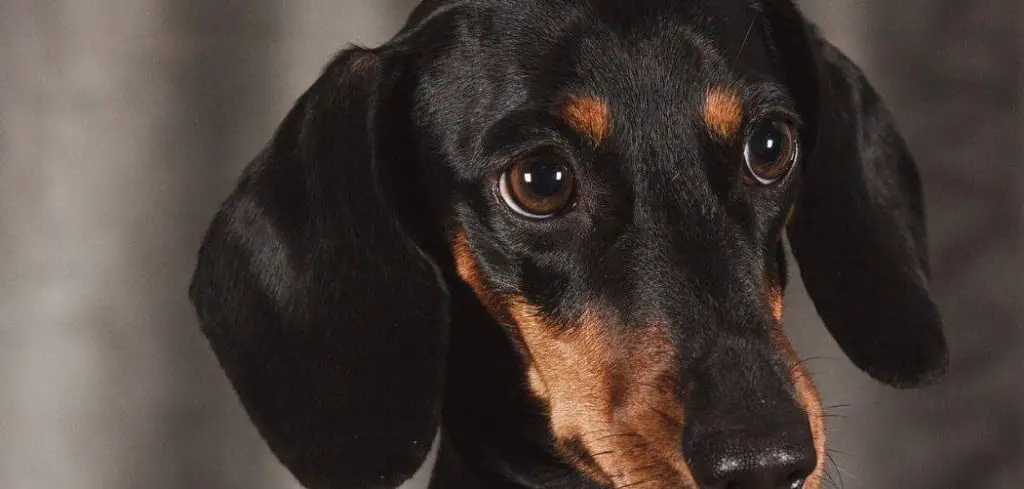If your dog is lethargic not eating and has a runny nose, it could be a sign of more than just a mild cold.
While nasal discharge alone may seem harmless, when paired with low energy and appetite loss, it often signals a deeper problem.
We outline why these symptoms appear together, what they mean, and what steps you should take to help your dog recover safely.
Table of Contents
Dog Lethargic Not Eating Runny Nose: Why It Happens
When your dog is lethargic not eating runny nose symptoms may point to causes like upper respiratory infections, kennel cough, canine influenza, allergies, dental disease, or even foreign bodies in the nose. Some of these issues are mild and self-limiting, while others require medical intervention.

Dog Lethargic Not Eating Runny Nose: Common Causes
Upper Respiratory Infections (URIs)
Much like in humans, dogs can get viral or bacterial infections that affect the nose, throat, and lungs. A dog with a URI may have:
Clear or cloudy nasal discharge
Coughing or sneezing
Fever
Decreased energy and appetite
These infections are contagious and often spread in boarding facilities or shelters.
Most cases resolve with supportive care, but some dogs—especially seniors or puppies—may need antibiotics or fluids.
Kennel Cough
Kennel cough is a common respiratory infection in dogs caused by a mix of bacteria and viruses, such as Bordetella bronchiseptica. While it’s typically mild, it can cause significant discomfort and secondary symptoms.
Dogs with kennel cough may show:
A harsh, dry cough (often worse at night)
Runny nose or watery eyes
Mild lethargy
Reluctance to eat due to throat irritation
Kennel cough usually resolves in 1–2 weeks, but a vet may prescribe antibiotics or cough suppressants to aid recovery.
Related: My dog is lethargic and not eating (Causes and when to worry)
Canine Influenza (Dog Flu)
The dog flu is a contagious viral infection that causes symptoms similar to the human flu.
It’s often more severe than kennel cough and can result in serious illness, especially if left untreated.
Symptoms include:
Runny nose
Fever
Lethargy
Appetite loss
Productive cough
If you suspect canine influenza—especially during outbreaks—keep your dog isolated and contact your vet immediately.
Allergies or Environmental Irritants
Some dogs experience seasonal allergies or reactions to indoor irritants like dust, perfumes, or smoke.
While usually not serious, allergies can make your dog feel tired and disinterested in eating.
You may notice:
Sneezing
Clear nasal discharge
Itchy eyes or skin
Reverse sneezing
If allergies are the cause, symptoms tend to be mild and recurrent. Your vet might recommend antihistamines or hypoallergenic food.
Dental Disease or Oral Infections
Infections in the mouth—especially upper teeth—can spread to the nasal cavity, causing a runny nose and systemic signs like lethargy and appetite loss.
Other signs include:
Bad breath
Drooling
Swollen gums
Difficulty chewing
Left untreated, dental disease can lead to abscesses and sinus infections. A dental exam and professional cleaning may be needed.
Foreign Body in the Nose
Dogs sometimes get small objects (like grass seeds or bits of food) lodged in their nasal passages. This can cause nasal discharge, sneezing, and discomfort, leading to behavioral changes like fatigue and refusal to eat.
Look for:
One-sided nasal discharge
Frequent pawing at the nose
Snorting or sneezing fits
Removing a nasal foreign body often requires sedation and special tools, so call your vet if you suspect this issue.
Sinusitis or Nasal Tumors
In more serious cases, prolonged nasal discharge with lethargy and appetite loss may signal sinusitis or even a nasal tumor, particularly in older dogs.
Warning signs include:
Persistent nasal discharge (often bloody)
Facial swelling or asymmetry
Decreased interest in surroundings
These conditions require imaging and diagnostics for a definitive diagnosis and treatment plan.
What to Do If Your Dog Is Lethargic, Not Eating, and Has a Runny Nose
Try the following supportive care steps at home:
Wipe nasal discharge – Use a soft, damp cloth to keep your dog’s nose clean.
Keep them warm and comfortable – Rest helps recovery from minor infections.
Offer warm, bland meals – Slightly heating food can make it more enticing to a sick dog.
Use a humidifier – Moist air can ease nasal congestion.
Avoid exposure to other pets – Prevent spreading illness if your dog is contagious.
If your dog’s condition doesn’t improve within 24–48 hours or worsens, call your vet.
When to Call or Visit Your Vet
Contact your vet if:
Nasal discharge is yellow, green, or bloody
Lethargy is severe or persistent
Your dog hasn’t eaten in over 24 hours
Breathing becomes labored or noisy
Coughing or other symptoms develop
Your vet may perform a physical exam, nasal swab, bloodwork, or imaging to determine the underlying cause and provide treatment.
Related: My dog is drooling and lethargic (Here’s why)
Key Takeaway
A runny nose might not seem serious at first glance, but if your dog is also lethargic not eating, it’s likely a sign of illness.
From mild respiratory infections to more serious health conditions, the causes of these symptoms are varied—but many are treatable when caught early.
Trust your instincts, monitor your dog closely, and seek veterinary guidance if symptoms don’t improve quickly.
Your quick attention can help your pup get back to feeling like themselves.
